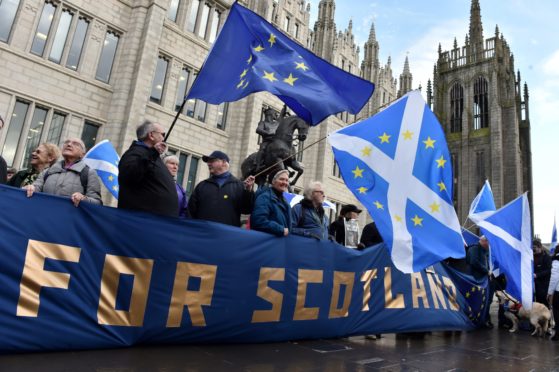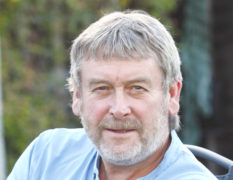We can only guess at what “normal” life will resemble when we fully emerge from the coronavirus shadow. Nobody knows therefore what shape Scotland will be in when the UK finally walks away from the EU. But the country will be changed.
The pro-Brexit political philosopher John Gray anticipated the pandemic’s end in the New Statesman: “The deserted streets will fill again, and we will leave our screen-lit burrows blinking with relief. But the world will be different from how we imagined it in what we thought were normal times. This is not a temporary rupture in an otherwise stable equilibrium: the crisis through which we are living is a turning point in history.”
A return to the way things were is not a worthy goal. As many have said, we should re-evaluate who is important. The Makar Jackie Kay made a start with her poem “Essential”.
The heroism displayed in the NHS, care sector and other vital services, not least by some of the most poorly paid in society, has been praised. Even by Conservative MPs, including the prime minister, who cheered as they defeated the opposition amendment to the Queen’s Speech in 2017, to lift the 1% cap on nurses’ pay.
It is time to reward those who cared for us through dark days, with more than warm words and clapping.
But what are the chances of pursuing a more balanced society when the Bank of England is warning of the deepest recession for 300 years?
This is even without the economic uncertainty of Brexit. The UK Government has dismissed calls from Scottish ministers and others like the International Monetary Fund that, in light of the global crisis, EU negotiations be extended.
One of the most disturbing statements from 10 Downing Street has been that the pandemic underlined the need to leave the EU properly in December. If the EU asks for an extension to the transition period, it would be refused.
This because remaining in the EU would apparently restrict the UK’s ability to respond to the imminent economic crisis. Exactly how an additional shock to an economy already on its knees will help, remains unclear.
But it would be consistent with Professor Michael Keating’s important warning in The P&J, that a hard Brexit is a likely outcome from the pandemic.
We have, therefore, to start planning now about how Scotland can best recover. This should not be left only to governments or parliaments. It is a time for fresh thinking. New ideas are needed.
Long before the arrival of coronavirus, there were suggestions that the Highlands and Islands needed to develop new policy approaches to deal with Brexit and climate change. It was probably true then. It certainly is now, with areas dependent on tourism already haemorrhaging.
There has been a long tradition of close co-operation between the likes of Highlands and Islands Enterprise and the local authorities on many issues. But the years of austerity and continued budget cuts inevitably led these bodies to become more inward-looking.
The three islands councils provided a refreshing exception with their effective Our Islands Our Future campaign which resulted in the 2018 Islands Act, requiring future legislation be island-proofed.
But there is a need now for a forum where new thinking for the Highlands and Islands can be developed to face “the new normal”. A forum which is not beholden to government, local or national, but understands it and is equipped to ruffle the feathers of the powerful.
The Convention of the Highlands and Islands hardly fits that bill. But there is a precedent worth revisiting.
In 1991 a thinktank, Barail (Gaelic for opinion), was founded. It was originally called the Centre for Highlands & Islands Policy Studies, but the acronym Chips didn’t quite strike the right chord.
Barail’s members had their feet firmly planted in the everyday life of the Highlands and Islands: from fishing in Shetland; to crofting in Lewis and Lochaber; the media to Gaelic; politics and local government to economic development; nature conservation to tourism.
It played a crucial role in the ultimately successful campaign to establish the University of the Highlands and Islands (UHI). It also did important work highlighting the role of women in the economy of the Highlands and Islands. For various reasons it lost momentum.
But perhaps now is the time to reheat the Chips concept. Its obvious home would be in the UHI, with its network of regional centres.
There are plenty who could bring something to the Chips table: those who know their way round government; those who have already played an important part in the development of the modern Highlands and Islands – the Highland elders.
The different economic sectors would have to be recognised. Community Land Scotland, which has become a symbol of land reform, should be involved.
But so too should younger minds.
Those who will live to see the future, not just plan it today.
David Ross is a veteran Highland journalist and author of an acclaimed book about his three decades of reporting on the region

